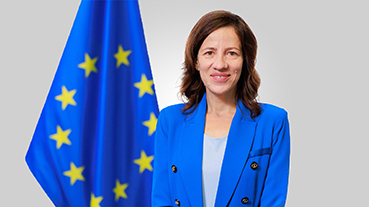Commissioner Roxana Mînzatu, who holds the position of Executive Vice-President for Social Rights and Skills, Quality Employment, and Preparedness, will be responsible “for the development of the Social Economy, particularly through the full implementation of the Action Plan for the Social Economy,” as stated in the mission letter sent by European Commission President Ursula von der Leyen to Roxana Mînzatu.
Roxana Mînzatu (Bucharest, 1980) holds a degree in Political Science and has extensive experience managing European funds, gained in the private sector, NGOs, and public office. Elected as an MEP for the Social Democratic group, she previously served in the Romanian Parliament from 2016 to 2020 and acted as Minister of European Funds in 2019, with a particular focus on infrastructure development and the digitalization of Romania.
The European social economy federation, Social Economy Europe, has welcomed the designation of Roxana Mînzatu as Commissioner with competences in Social Economy, emphasizing that it “grants greater recognition to this business model by placing it firmly on the European agenda for the next five years.”
For Social Economy Europe (SEE), this appointment fulfills their proposals presented during the European Elections last June. It also responds to the requests made by the social economy ministries of 19 governments for the appointment of a Commissioner responsible for Social Economy in the current legislative term.
According to SEE President Juan Antonio Pedreño, it is essential to ensure the full implementation of the European Social Economy Action Plan, which was approved by the previous Commission: “Now is the time to fully deploy the more than 60 measures in this Plan, which will require coordination with other Commissioners, particularly Stéphane Séjourné, responsible for Europe’s industrial policy, and the involvement of all the Commission’s Directorates-General and Member States.”
Pedreño stated that he would communicate to Vice-President Mînzatu and the entire College of Commissioners the European social economy’s full readiness to work closely with the Commission for the successful development of the Action Plan.
Pedreño concluded that this appointment solidifies the social economy as a key driver, strengthening its presence on the European agenda. This, he said, “must be reflected in the EU’s institutional framework, particularly in the Parliament, with the renewal of the Social Economy Intergroup, a strategic forum for developing European policies for this business model, which in Europe represents 4.3 million enterprises and provides jobs to 11.5 million people.”







